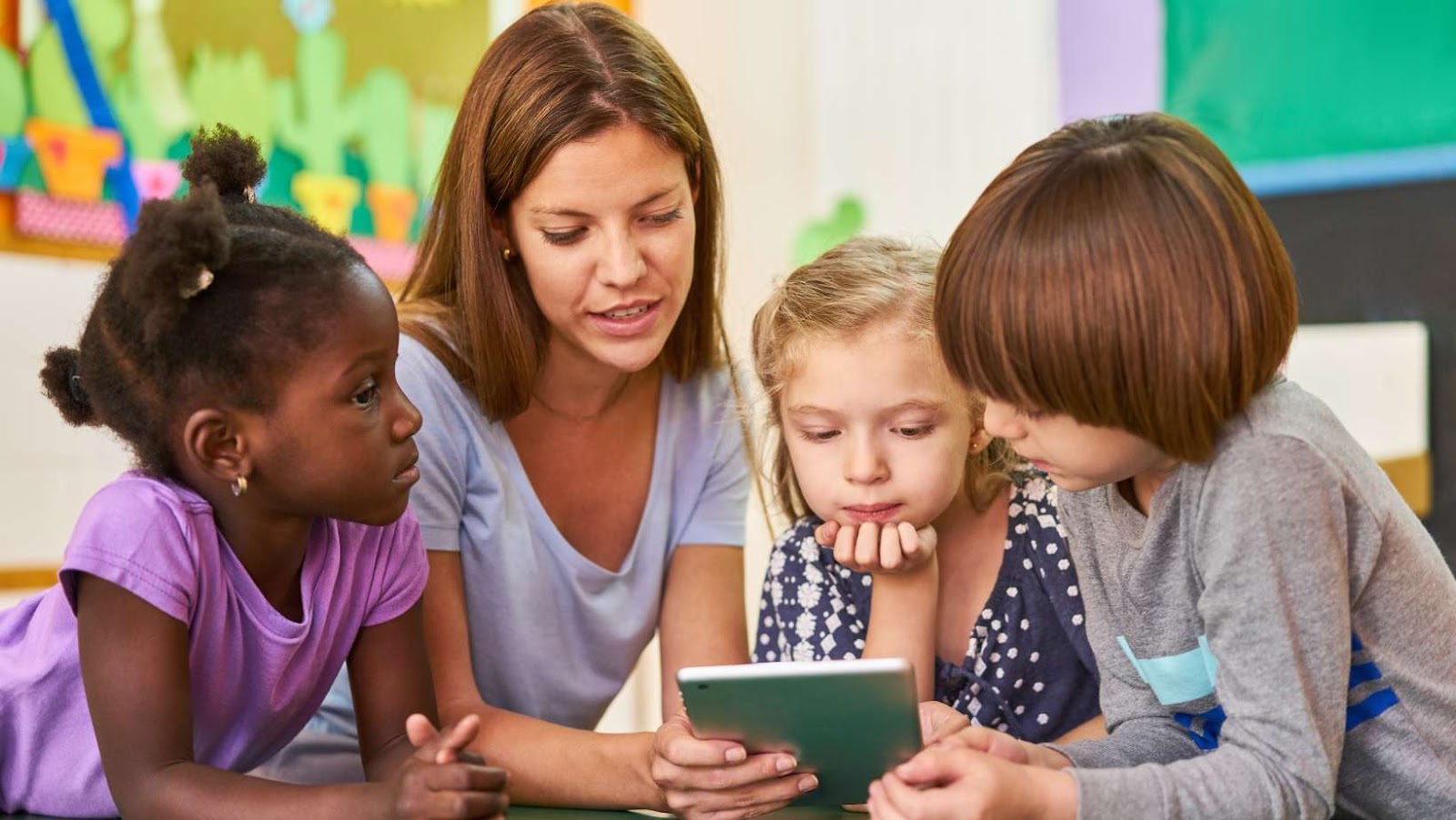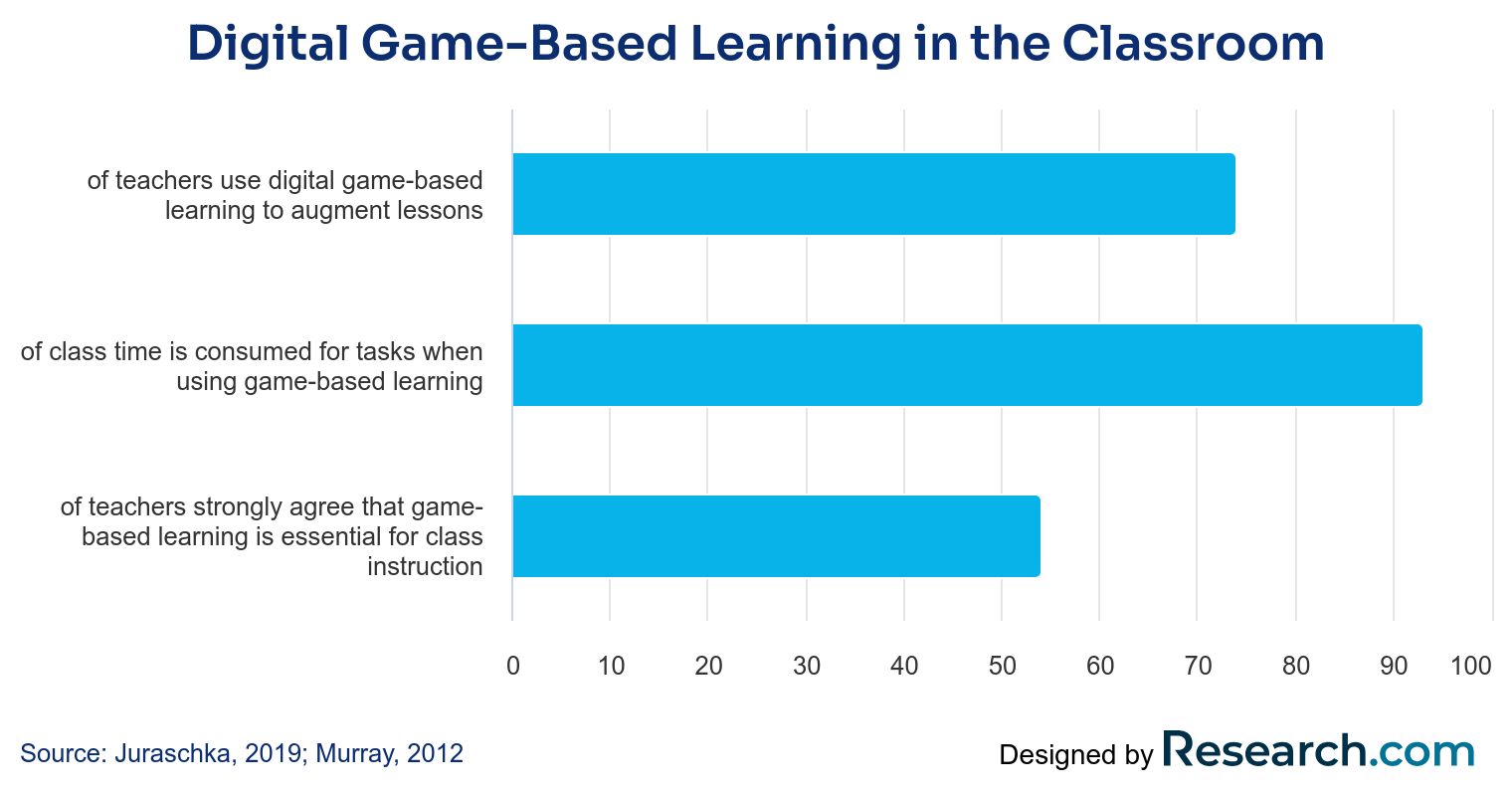Children’s educational apps have revolutionized the way kids learn, making education more engaging and accessible. These apps combine learning with fun, leveraging technology to create interactive and personalized educational experiences.
The importance of these apps in modern education cannot be overstated, as they cater to the diverse needs of children, from toddlers to school-age students, helping them develop a wide range of skills.
According to a study by the Joan Ganz Cooney Center, 80% of children aged 0-8 have access to a tablet, and over 60% of them use educational apps. Another survey by Common Sense Media found that the average screen time for children aged 0-8 is 2 hours and 19 minutes per day, with educational apps comprising a significant portion of this time.
So let’s explore how children’s educational apps make learning enjoyable. We will look at the different types of apps available, the features that enhance their appeal, the benefits they offer, the challenges they face, and the future prospects of this innovative educational tool.

Types of Children’s Educational Apps
1. Subject-Specific Apps:
- Math Apps: These apps make learning math fun through interactive games, puzzles, and challenges that teach concepts such as addition, subtraction, multiplication, and division. Popular examples include Mathletics and DragonBox.
- Science Apps: Science apps like Toca Lab and Science360 use experiments, simulations, and visualizations to teach scientific concepts, making complex topics more understandable and engaging for children.
- Language Learning Apps: Apps like Duolingo and Rosetta Stone offer interactive lessons and games to help children learn new languages. They use a mix of visual aids, audio clips, and quizzes to enhance vocabulary and grammar skills.
2. Age-Specific Apps:
- Apps for Toddlers: Designed for very young children, these apps focus on basic skills like shapes, colors, and simple words. Examples include ABCmouse and Fisher-Price Laugh & Learn.
- Apps for Preschoolers: Preschool apps like Endless Alphabet and Starfall focus on early literacy and numeracy skills, using songs, stories, and games to teach letters, numbers, and simple words.
- Apps for School-Age Children: These apps cover a wide range of subjects and skills, from reading and writing to math and science. Examples include Khan Academy Kids and BrainPOP.
3. Skill Development Apps:
- Critical Thinking Apps: Apps like Thinkrolls and Monument Valley encourage children to solve puzzles and challenges that enhance their problem-solving and critical-thinking skills.
- Creativity Apps: Creativity apps like Toca Life and Minecraft allow children to explore their creativity through drawing, building, and storytelling.
- Social Skills Apps: Apps like Social Express and Peppy Pals help children develop social and emotional skills through interactive stories and scenarios.
Related Articles:
How is Machine Learning Disrupting Mobile Apps Development
How to develop a meditation app like Calm and Headspace
25 Simple Ways To Promote Your Mobile App

Features That Make Learning Fun
1. Gamification:
- Points and Rewards: Many educational apps for kids use a points and rewards system to motivate children. By earning points, badges, or virtual currency, children feel a sense of achievement and are encouraged to keep learning.
- Leaderboards: Leaderboards add a competitive element, allowing children to see how they rank against their peers, which can motivate them to improve their performance.
- Challenges and Levels: Breaking down learning into challenges and levels helps children set goals and track their progress, making learning feel like a game.
2. Interactive Elements:
- Quizzes and Puzzles: Interactive quizzes and puzzles test children’s knowledge in a fun and engaging way, reinforcing what they have learned.
- Simulations: Simulations provide hands-on learning experiences, allowing children to experiment and learn through trial and error.
- Augmented Reality (AR) and Virtual Reality (VR): AR and VR technologies create immersive learning environments that make abstract concepts more tangible and exciting.
3. Personalization:
- Adaptive Learning Paths: Personalized learning paths adjust the difficulty of tasks based on the child’s progress, ensuring that they are always challenged but not overwhelmed.
- Customizable Avatars: Allowing children to create and customize their avatars adds a personal touch and makes the learning experience more engaging.
- Progress Tracking: Apps that track progress help children and parents see how much they have learned and identify areas that need more focus.
4. Engaging Content:
- Storytelling: Story-driven content captivates children’s imagination and helps them understand and remember concepts better.
- Visual and Audio Effects: High-quality visuals and audio effects enhance the learning experience, making it more immersive and enjoyable.
- Animated Characters: Animated characters guide children through lessons and activities, making learning more relatable and fun.
Tip: If you’re inspired by the transformative potential of educational apps and are considering developing one for kids or adults, look no further than App-Scoop. As Vancouver’s top-rated app development company, we specialize in custom education app development services. Our comprehensive process includes Discovery and Strategy, Design and Prototyping, and Agile Development to ensure your app meets your vision and objectives.
Once the app is ready, we handle its deployment to app stores, ensuring compliance with all guidelines and requirements. Furthermore, we provide ongoing support, updates, and maintenance to keep your app secure, optimized, and in line with your evolving business needs. Contact us today to bring your educational app idea to life with App-Scoop’s expertise and dedication.
Benefits of Using Educational Apps
1. Convenience and Accessibility:
Educational apps provide unparalleled convenience and accessibility for learning. They can be used anytime, anywhere, making them a flexible tool for education. Whether at home, during travel, or in any downtime, children can access educational content without the constraints of a traditional classroom.
2. Engagement and Motivation:
Educational apps keep children engaged and motivated through interactive and gamified content. The use of quizzes, puzzles, and games makes learning fun and exciting. According to Research.com, 74% of teachers use game-based learning to reinforce their lessons, an indication that these tools are effective in enhancing student engagement.
This increased engagement helps maintain children’s interest in their studies and encourages a positive attitude towards learning.

3. Personalized Learning Experience:
Many educational apps offer personalized learning experiences, adapting to the individual needs and pace of each child. Features like adaptive learning paths and progress tracking ensure that the content is customized to suit each child’s learning style and capabilities.
This personalization helps children to understand and retain information better, providing a more effective learning experience.
4. Development of Cognitive and Motor Skills:
Educational apps play a significant role in enhancing cognitive and motor skills. They often include activities that require problem-solving, critical thinking, and memory exercises, which boost cognitive development.
Apps that involve touch interactions can also improve fine motor skills in young children. These skills are crucial for overall development and future learning success.
5. Parental Involvement and Monitoring:
Educational apps often come with features that allow parents to monitor their child’s progress. This helps parents stay informed about what their children are learning and identify areas where they might need additional support.
Parental involvement in learning activities can strengthen the parent-child bond and create a supportive learning environment at home. This involvement also helps parents make informed decisions about their child’s education.
Educational Apps vs Traditional Learning
- Flexibility: Educational apps offer more flexibility compared to traditional learning methods, allowing children to learn at their own pace and on their own schedule.
- Engagement: The interactive and gamified nature of educational apps can make learning more engaging and enjoyable compared to traditional methods.
- Immediate Feedback and Progress Tracking: Many educational apps offer instant feedback and track progress in real-time, helping children and parents monitor learning outcomes. Traditional learning methods may delay feedback, as it often depends on manual grading and assessment schedules.

Education has become more fun, engaging, and accessible for children with the help of educational apps.
As technology advances, these apps will become even more important, helping children develop a lifelong love of learning and essential skills for the future.
Frequently Asked Questions
What are children's educational apps?
Children’s educational apps are mobile applications designed to help kids learn new concepts, skills, and knowledge through interactive games, videos, quizzes, and other engaging content tailored to their age and developmental stage.
How do educational apps make learning enjoyable for children?
Educational apps use gamification techniques, interactive animations, rewards, and challenges to keep children engaged while they learn. The fun elements help maintain their attention and motivate them to continue learning.
What role does interactivity play in children’s educational apps?
Interactivity allows children to actively engage with the learning material, rather than passively consuming content. This hands-on approach improves understanding, retention, and critical thinking skills, making learning more effective and enjoyable.
How can educational apps adapt to a child's learning pace?
Many educational apps offer adaptive learning features that adjust the difficulty of tasks based on a child’s performance. This ensures that the learning experience is appropriately challenging, helping children progress at their own pace.
What types of skills do children’s educational apps help develop?
Children’s educational apps help develop a variety of skills, including literacy, numeracy, problem-solving, critical thinking, motor skills, creativity, and social-emotional learning. They often cover a wide range of subjects like math, science, art, and languages.
How do rewards and incentives work in educational apps for children?
Many apps incorporate rewards systems such as stars, badges, and virtual items to motivate children to complete tasks and challenges. These rewards reinforce positive learning behaviors and encourage kids to keep progressing.
Are educational apps suitable for all age groups?
Yes, educational apps are available for various age groups, from preschoolers to older children. The content and features are tailored to different developmental stages, ensuring age-appropriate learning experiences.
How do educational apps support creativity in children?
Educational apps often include activities like drawing, music creation, storytelling, and building virtual worlds, allowing children to express their creativity. These activities help develop their imagination and problem-solving skills.
Can educational apps enhance children’s social skills?
Some educational apps include multiplayer features, allowing children to collaborate or compete with peers. These interactions can help enhance social skills, teamwork, and communication abilities in a fun and supportive environment.
Are educational apps beneficial for children’s learning outside the classroom?
Yes, educational apps complement traditional learning by providing an interactive, hands-on way to reinforce what children learn in school. They offer a convenient and engaging way for kids to practice skills, explore new topics, and develop a love for learning in a fun setting.



